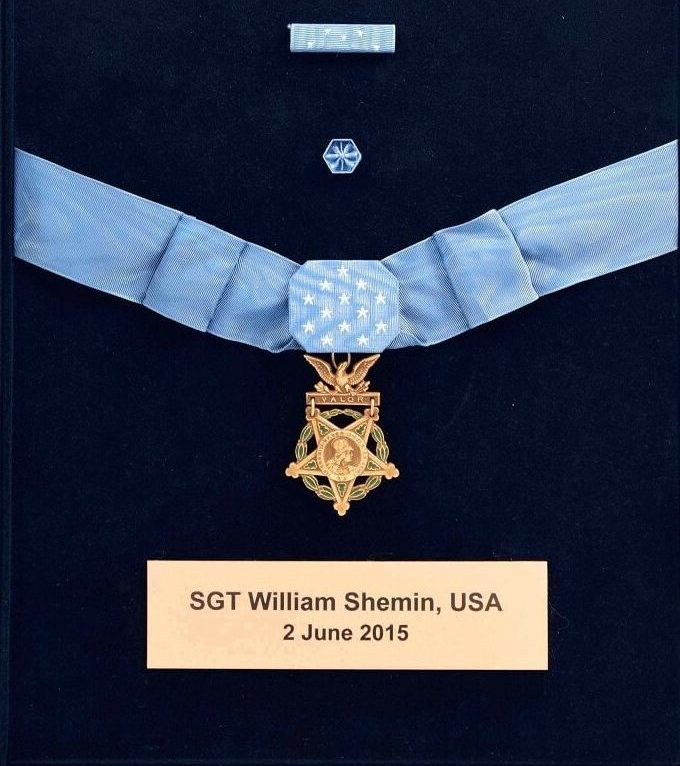Heroism on the Vesle
Throughout the summer of 1918, the northern French village of Bazoches-sur-Vesle witnessed intense fighting during the Aisne-Marne Offensive. In early August, German troops retreated to the banks of the rain-swollen river that divides the village, lobbing mustard gas shells and firing machine guns at the Allied troops in pursuit.
Among the Allied soldiers was a young Jewish forestry student from New Jersey named William Shemin, a rifleman in the 47th Infantry Regiment of the Fourth Division of the American Expeditionary Forces. Shemin’s fellow soldiers watched in amazement as he ran into the line of fire multiple times to save the lives of three wounded comrades. After taking command when superior officers fell in battle, Shemin was grievously injured but stubbornly persisted, evacuating his regiment across the river amidst intense fighting, doubtlessly saving more lives.
A Long Awaited Honor
On June 2, 2015, President Obama awarded the Medal of Honor posthumously to Sergeants William Shemin and William Henry Johnson of the 369th Infantry, an all-Black unit better known as the Harlem Hellfighters. “We are a nation, a people, who remember our heroes,” the president declared. Both men fought heroically but did not receive the nation’s highest award for valor “above and beyond the call of duty” during their lifetimes.
Top image: William Shemin
Courtesy of the William Shemin Collection, National Museum of American Jewish Military History
Image at right: Medal of Honor
Washington DC, 2015
Weitzman National Museum of American Jewish History, 2018.24.1
Gift of Elsie Shemin-Roth and Ina Bass
This exhibition was prepared by staff of the Weitzman Museum and the National Museum of American Jewish Military History with the assistance of Jiayi Li, a student at the University of Pennsylvania and a Summer 2022 intern at the Weitzman National Museum of American Jewish History

From the Lower East Side to his valiant deeds, explore Sergeant Shemin’s life through the 30 artifacts and stories below. Scroll through to the right and click on each of the 32 images to learn more.
William Shemin believed it was his duty to support his country. He fought courageously and demonstrated selfless devotion to his comrades. Nevertheless, like many minority soldiers who fought valiantly, he did not receive the highest honor to which he was entitled.
Thanks to the hard work of family members and supporters, Shemin received a posthumous Medal of Honor in 2015, alongside William Henry Johnson. The William Shemin Jewish World War I Veterans Act stands as a further legacy to his valiant service, allowing the review of records in search of similarly overdue honors for other Jewish World War I soldiers.
Want to learn more? Here are just a few suggestions for books and online exploration.